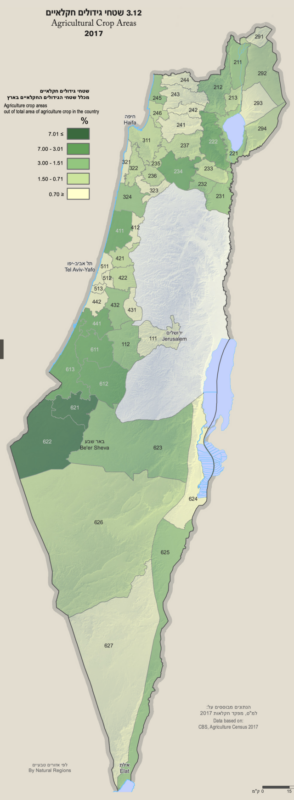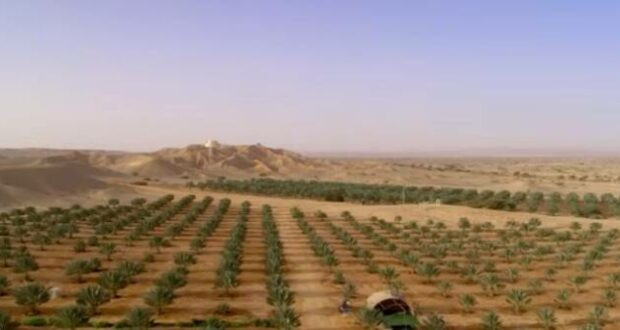Israeli farmers are predicting a 35% drop in both production and revenue. But those in the country’s southern breadbasket near Gaza are projecting an average 70% loss of produce and 69% loss of income.
It’s a surprising development for a country considered to have the most advanced farming techniques in the world.

Agricultural crop areas (out of the total area of agriculture crops in the country) in Israel in 2017 by natural regions
Israel Central Bureau of Statistics
Israel’s Ministry of Agriculture is increasing imports of some food. Until Gazans and Hamas attacked Israel on Oct. 7, the country was virtually self-sufficient in most food production.
The challenge, say officials, is that Israeli agriculture is facing staggering losses in production and labor. Before Oct. 7, Israel had 29,900 foreigners, mostly Thais, working in farms, orchards, greenhouses and packing plants. Nearly all have returned to Thailand.
Farmers also employed 10,000-20,000 Palestinians, depending on the season, but they are currently denied entry into Israel.
Israeli workers who might have filled the gaps have been called up for military reserve duty. The volunteers from the U.S. and other countries is not enough to fill the demand.
And because of security concerns, farmers near the Gaza and Lebanese borders cannot access many of their fields and orchards.
A survey of 389 farmers conducted by the MIGAL Galilee Research Institute found that a whopping 89% of Israeli farmers had experienced some form of damage, and 96% expected more during the next three months. While farmers in the Gaza and northern regions have had the greatest disruption, all areas have been severely affected, and the impact is expected to continue for months to come.
Nearly three-quarters of the farmers, 72%, said they have experienced disruptions to their workforce, even in areas not near Gaza or Lebanon such as central Israel and the Jordan Valley.
Access was another problem cited by farmers, with 23% saying they couldn’t reach their fields to plant, pick crops or perform routine fertilizing or irrigation work, or damage control. Those farmers were primarily near the Gaza and Lebanese borders.
–From JNS.org and other news services.
 Metro Voice News Celebrating Faith, Family & Community
Metro Voice News Celebrating Faith, Family & Community









